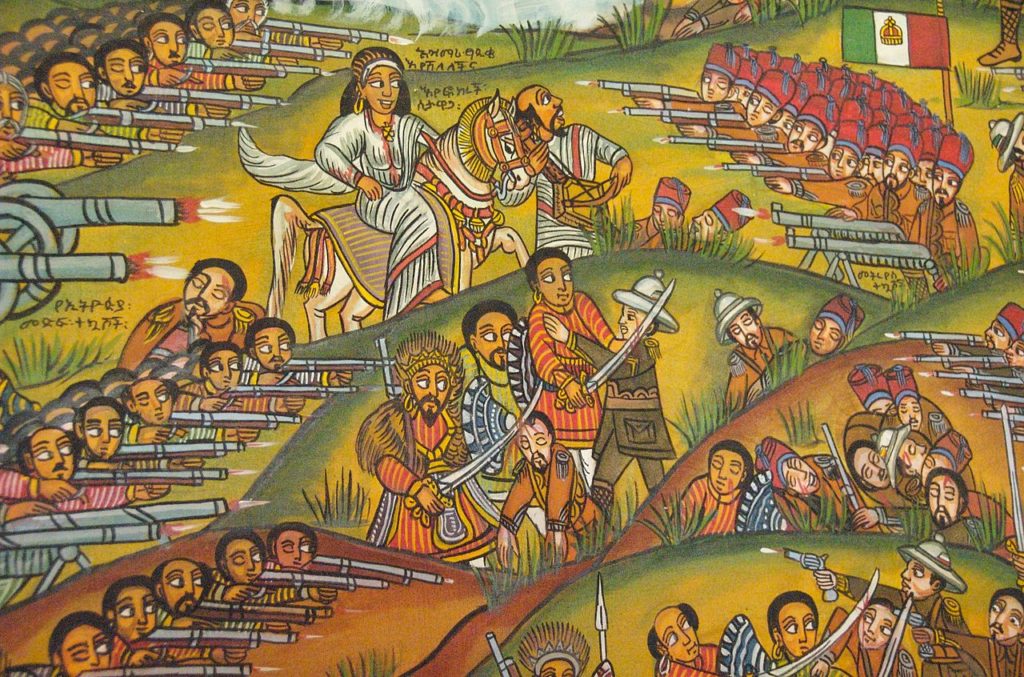by YIRGA GELAW WOLDEYES

On the first day of March 124 years ago, traditional warriors, farmers and pastoralists as well as women defeated a well-armed Italian army in the northern town of Adwa in Ethiopia. The outcome of this battle ensured Ethiopia’s independence, making it the only African country never to be colonized. Adwa turned Ethiopia into a symbol of freedom for Black people globally. It also led to a change of government in Italy.
The town of Adwa is located in Northern Tigray, closer to the southern border of Eritrea. Yeha, the capital of Ethiopia’s ancient empire from 980-400 BC, and the monastery of Aba Garima, which was founded in the sixth century AD, are located near the town.
The battle between Ethiopia and Italy took place in the mountainous terrain of the area.
Adwa still stands as witness to what ordinary Africans can do when they come together as farmers, pastoralists, women and rural people, workers and artists. They are able to score a decisive victory against global colonialist forces.
Ethiopia’s place in the world
Since the beginning of slavery and colonialism in the 16th century, similar battles had occurred around the world. The outcome of every war was the same. Europeans ended up ruling the native peoples of the Americas, Africa, Asia and Australia.
Ethiopia stood as the antithesis of the colonial worldview. Regarded as the origin of humankind, it was, according to Harvard professor Ephraim Isaac
The people spoke an Afrasian language, which is the origin of almost all languages currently spoken in Ethiopia, Eritrea and Somalia.
Ethiopians developed the Geez or Ethiopic writing system. From the fourth century, an indigenous Christianity, Orthodox Tewahido, developed through the synthesis of belief in the Ark of the Covenant, the gospel and ancient traditional practices.
The Kebra Nagast, the national epic that elaborates this belief, provided the basis for the emergence of a Solomonic dynasty that incorporates diverse lands and cultures into one country. Muslim immigrants were welcomed and protected by the Christian king in the seventh century.
In the 19th century, the three successive kings, namely Emperor Tewodros of Gondar, Yohannes of Tigrai and Menelik of Shoa, sought to centralize power.
Toward Freedom for more
